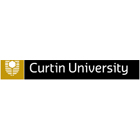Master of Science (Agriculture and Food Security)
Master of Science (Agriculture and Food Security)
This master program will allow candidates to acquire knowledge and skills for agricultural systems and food security. Candidates will study farming systems and ensuring a secure food supply in Australia and globally. These systems have relevance to mediterranean environments around the world, and to areas where agricultural production is determined…
Categories
COURSE DESCRIPTION
This master program will allow candidates to acquire knowledge and skills for agricultural systems and food security. Candidates will study farming systems and ensuring a secure food supply in Australia and globally. These systems have relevance to mediterranean environments around the world, and to areas where agricultural production is determined by rainfall during the cooler part of the year. The program will cover science and technology for crop, pasture, livestock and food production (including the roles of genetics and management in achieving sustainable production against environmental constraints), and their integration into viable farming systems. Special emphasis is placed on emerging technologies for precise management of crops and livestock, and the role of these technologies in ensuring sustainable and environmentally sound production systems into the future. A research project in an area relevant to agricultural systems or food security is an important component of the program.
What you’ll learn
Have demonstrated knowledge and understanding of agriculture and food security that extends beyond that is typically associated with the bachelor-level, and that provides a basis or opportunity for originality in developing and/or applying ideas, often within a research context
Can apply their knowledge, understanding, and problem-solving abilities in new or unfamiliar environments within broader (or multidisciplinary) contexts related to agriculture and food security
Can clearly and unambiguously communicate their conclusions, along with the knowledge and rationale underpinning these, to specialist and non-specialist audiences
Can integrate knowledge, handle complexity, and formulate judgements including reflection related to relevant social and ethical responsibilities
Comprehend and respect that agriculture and food security is an international discipline with varying perspectives as demonstrated in the diversity of opinion identified while undertaking this course
Have developed the learning skills to allow them to continue to study and practice in a manner that may be largely self-directed or autonomous.
REQUIREMENTS
A bachelor degree in a science field.
IELTS Academic (International English Language Testing System): Writing, Speaking, Reading, and Listening: 6.0; Overall band score: 6.0; TOEFL (Test of English as a Foreign Language): 79 Overall; Reading 13 Listening 13 Speaking 18 Writing 21; Pearson Test of English Academic: 58.
EDUCATIONAL INSTITUTION
Curtin University is Western Australia’s largest and most culturally diverse university with Australia’s third largest international student population. Around 60,000 students from more than 130 countries study a Curtin degree, at locations including Perth, Margaret River, Kalgoorlie, Sydney, Malaysia and Singapore. Our cultural diversity adds a rich and valuable dimension to the campus atmosphere, preparing all graduates to live and work effectively in an increasingly global environment. We offer a range of industry-aligned undergraduate and postgraduate courses in business, humanities, health, engineering and related sciences. We also have a long-standing focus on Aboriginal and Torres Strait Islander education and culture, supported by our Centre for Aboriginal Studies.Curtin is widely recognised for its practical research that is focused on solving timely, real-world problems. In recent years our research activity has grown significantly, driving our rapid rise up the international university rankings.As a university that never settles, we will continue to develop existing partnerships and establish new ones in areas relevant to our research and teaching.

